Australia’s top-performing Airbnb host Lynne Champion earns over $250,000 a year
LYNNE Champion has rubbed shoulders with the rich and famous around the world – and now the Palm Beach 63-year-old has carved out a lucrative career as an Airbnb host.
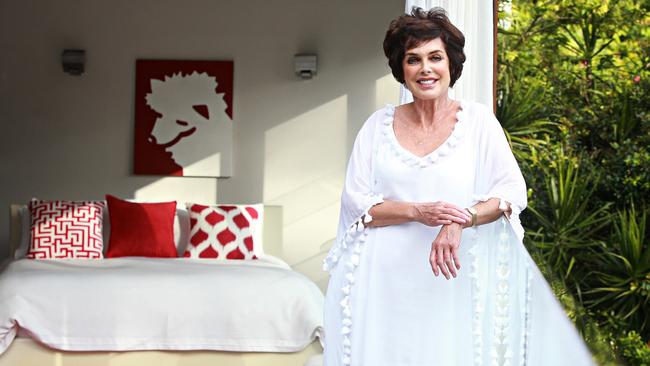
Manly
Don't miss out on the headlines from Manly. Followed categories will be added to My News.
LYNNE Champion has had a remarkable life, rubbing shoulders with the rich and famous around the world – and even finished runner-up in the first season of MasterChef USA in 2000.
The 63-year-old has now carved a niche as Australia’s Airbnb host with the most.
According to the popular online booking platform’s latest data, Ms Champion made just over $250,000 out of listing her Palm Beach property on Airbnb in the year to August 31, 2017, ranking her as the nation’s top performer.
She lets out her five-bedroom home at a flat rate of $2000 a night plus a $500 cleaning fee.
“I’m meticulous about everything, including the furnishings and the cleaning of the property so it is top quality,” said Ms Champion, who has documented her “exhausting but happy” life in her book, Champion Tales.
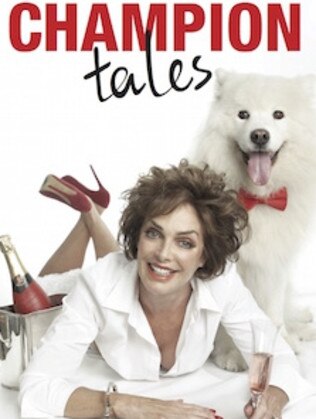
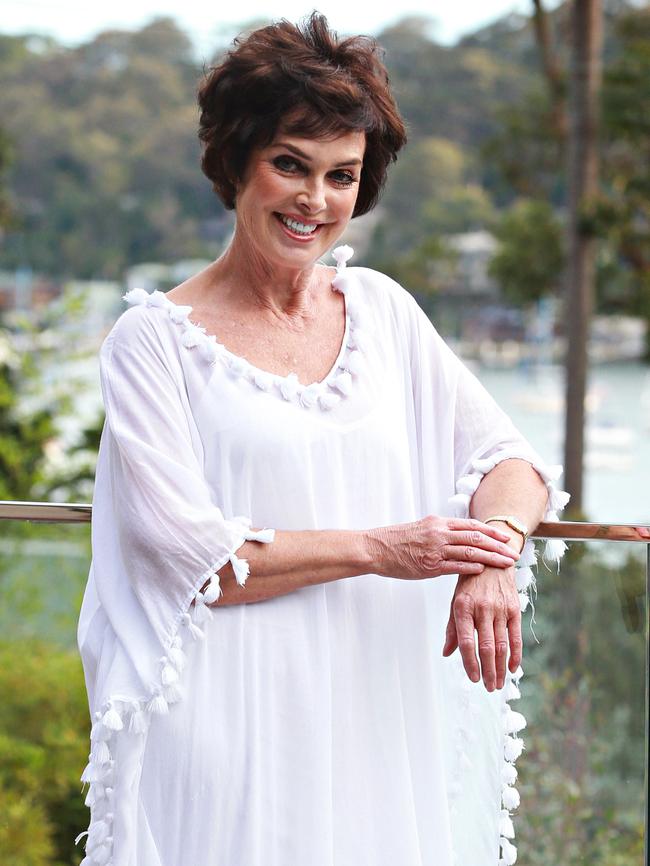
“I’m just a massive Airbnb fan. It works well for the host, in terms of generating extra money from your asset, and it’s safe for the guest.
“I’ve been an entrepreneur my whole life and I don’t want to employ people anymore so I do it all myself. It’s a chance for me to make a substantial income.
“It’s not for everyone, because you have to be very professional about it to be successful. Some people don’t really know what they’re doing and let themselves exposed to the possibility of bad things happening.”
Ms Champion says she has had only three incidents out of her hundreds of Airbnb bookings.
“And in those three instances I approached the guests, where there had been a table broken or damage to fridge or broken glasses, and listed the damaged items and asked them to put ‘x’ amount of dollars in my bank account and I’ll let it go,” she said. “Each time there was more than enough money given back to me.”
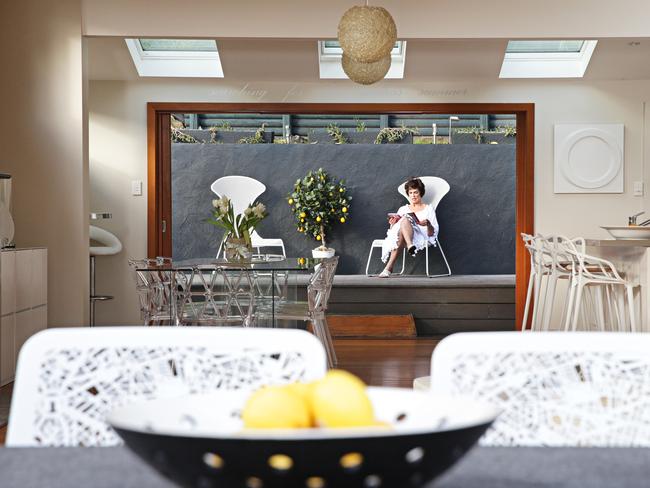
She has urged the government to leave the short-term letting industry alone as it ponders tighter regulations.
“The government should just stay out of it and let Airbnb do its thing,” Ms Champion said. “It’s a global world we live in. I would have rather have Airbnb guests in my house than rent it out to someone for six months or longer.”
Asked who her typical guest was, she said: “Couples from the city who just want a weekend getaway.
“And I’m getting more wedding business, where the bride and groom and their party book out the entire house for the weekend.”
The former fashion designer said the downside of letting out her beloved Palm Beach property was getting displaced.
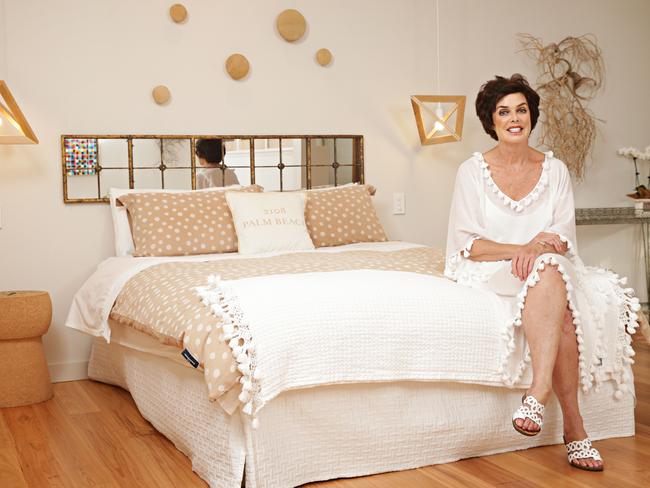
“So I might make $4500 for the weekend, but I still have to go somewhere,” he said. “I have an overnight bag and off I go somewhere and treat it as an adventure.
“It is all hard work. I run myself ragged. But I do love it, and especially the guests.”
CALL TO MAKE IT ‘FAIRBNB’
THERE are growing calls for an immediate crackdown on the “near-lawless” world of Airbnb as complaints rise about booming online accommodation portal.
New data obtained by News Corp shows the amount earned by local Airbnb hosts through the platform for the year to January reached $978 million, up more than 60 per cent on the $604 million in host earnings a year earlier.
Airbnb – which has an estimated global worth of $42 billion – has grown by a staggering 34 per cent across Sydney over the past year.
There were more than 20,000 listings and 526,000 guest arrivals across Sydney in the year to August 31, 2017, with the typical host earning $4400 a year.
In Manly there were 2200 listings, 30,200 guest arrivals and the average income for hosts was $4200 from a typical 20 nights of letting out their property. Pittwater had half as many listings but it was a more lucrative area, with hosts making an average of $7100 for a typical 20-night letting period.

Independent analysis by AirDNA, a company which “goes even further” in crunching Airbnb’s data, showed the top earner in Australia was an unnamed host or property management company in Sydney. Their staggering $5.3 million total revenue came from 247 properties.
According to a recent Deloitte Access Economics report, the Airbnb community is now a significant driver of the tourism economy with a total contribution to NSW’s Gross State Product of $512 million in 2015-16, supporting 4452 local jobs.
The new data comes as the nation’s consumer watchdog reports the number of scams on accommodation booking platforms including Airbnb have tripled since 2015.
The Australian Competition and Consumer Commission’s Scamwatch received more than 150 reports about scams on accommodation sharing platforms in 2017, with $80,000 reported lost.
Northern Beaches Council said short-term holiday letting was permitted in the former Manly and Pittwater LGAs, but not Warringah. It did not say how many complaints it had received about Airbnbs in the past year.
Australian travel blogger Asher Fergusson recently conducted a study of more than 1000 negative Airbnb reviews and complaints in 2017.
He found evidence of scams operating on the platform, such as listing a property at different price points and cancelling the lower-priced offer at the last moment if the higher-priced one gets booked, as well as providing deceptive information and photos.
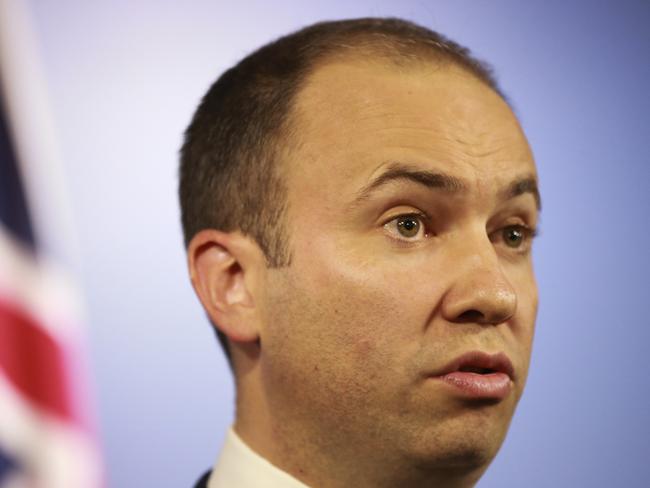
Airbnb’s opponents say it is being allowed to operate with few restrictions as the State Government “dillydallies” on reforming the short-term holiday letting industry.
Accommodation Association of Australia CEO Richard Munro said Airbnb was “an opaque business” which allowed it to “go under the radar”.
“What we’re seeing with Airbnb is an avoidance of most of the regulations and taxation; it’s a near-lawless world,” Mr Munro said.
Opposition Better Regulation spokeswoman Yasmin Catley said the government had “failed to lead” in an “emerging economy desperately in need of regulation”.
NSW Minister for Better Regulation and Hornsby MP Matt Kean hit back, saying the government was trying to “get the balance right on short-term holiday letting”.
Airbnb Australia boss Brent Thomas said he supported “clarity on the rules”.
“We’ve really got a 19th or 20th century regulatory model. We really need something that is fit for purpose and the future,” he said.
‘I’VE NEVER HAD ANY INCIDENTS’
MURRAY Walls has hit the jackpot with his luxury two-bedroom Fairlight apartment on Airbnb.
Over the past year the Manly real estate agent has let it out for 120 nights at an average daily rate of $1000. A German man paid $1100 a night for a 47-day stay.
Mr Walls believes the burgeoning tourism market on the northern beaches, coupled with the dearth of hotels in Manly, is helping Airbnbs flourish.
“Airbnb is a really good model; it works for both the hosts and guests, giving them a great local experience,” he said. “I’ve never had any incidents or problems at my property.”
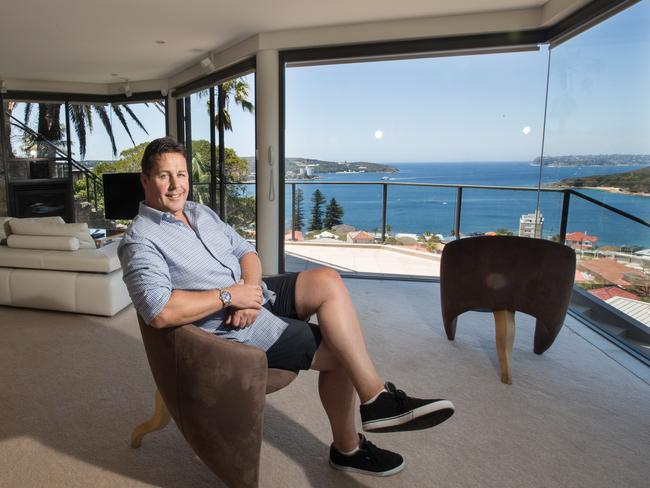
SECRET TO SUCCESS OF AIRBNB
THE extraordinary rise of Airbnb is largely due to travellers wanting an affordable and authentic local experience, the online portal’s Australian boss says.
“Australians love to travel and technology. Our fastest growing segment on both sides (as a host and guest) is older women. They are often people who have got time on their hands to travel and host,” Airbnb Australia head of public policy Brent Thomas said.
“And the way people and families travel is changing. People don’t always want to spend their hard-earned money or time on mass junk-food tourism or travelling the same way as their parents or grandparents did.
“They want to live like a local.”
Mr Thomas hit back at rivals who claimed Airbnb dodged paying tax and failed to meet regulatory compliances.
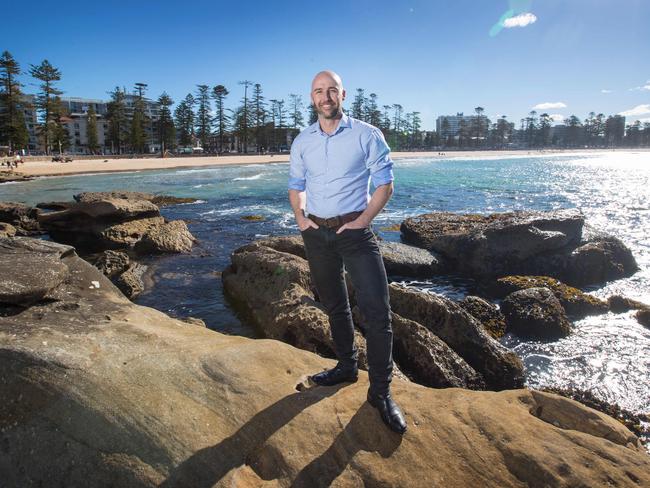
“With Airbnb hosts in Australia, 97 cents in every dollar they charge goes to the host — and that’s an Australian taxpayer. They pay income tax and we assist them in that process,” he said.
“There’s a lot of countries around the world — but Australia isn’t one of them — that levy a tourism, hotel or accommodation tax.
“We’ve come to arrangements with more than 340 jurisdictions around the world to partner with them on tourism taxes, and we’d be very happy to do that in Australia as well. But what you find is that the big hotel lobby doesn’t support that.”
NON-COMPLIANCE CONCERNS
Mr Thomas said Airbnb has “an incredibly strong record on safety and compliance”.
“Right now in Australia a host can get a free smoke and carbon monoxide protector, which makes people’s homes safer,” he said.
“If you share your home, there are protections for both the host for property damage and guests, if there’s any personal injury. We have partnered with Lloyd’s of London.
“There’s some misinformation coming from vested interests and those who prefer a different outcome than in Tasmania and South Australia.”
However, Mr Thomas conceded not everything is covered by Airbnb. And the Insurance Council of Australia reinforced this concern.
“Normal home and contents policies do not cover property owners for short-term holiday stays,” an ICA spokesman said. “We’ve consistently said for the past three years that the onus is on property owners who choose to let their properties out for short stays, including on Airbnb, to check their policies and what they are covered for.”
HOW AIRBNB STARTED
THE Airbnb success story came out of two American men’s desperation, determination, fear and hustle.
In late 2007, Airbnb founders Brian Chesky and Joe Gebbia had just moved from
New York to San Francisco. Without jobs, they were battling to pay their rent and were hunting for some extra coin.
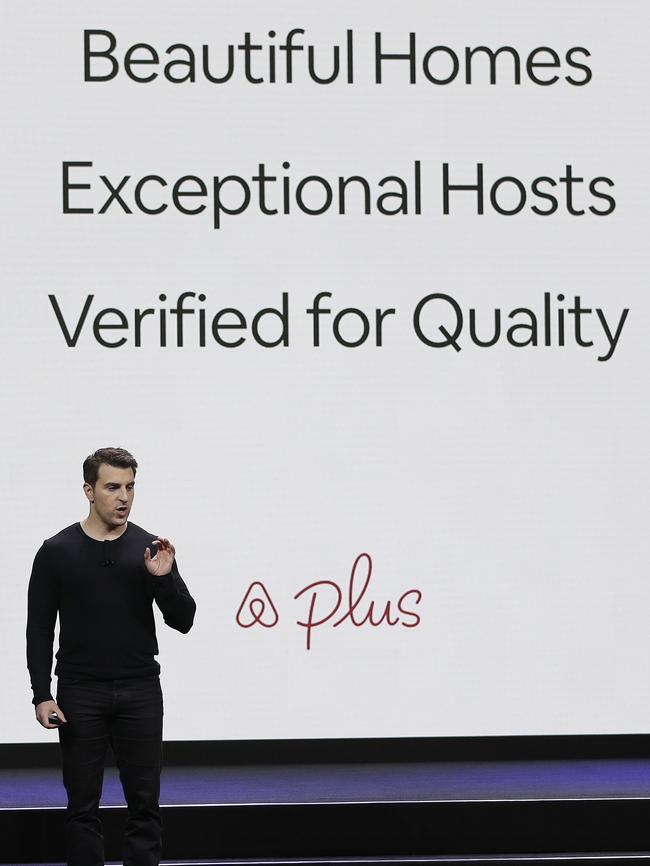
They noticed that all hotel rooms in the city were booked and saw an opportunity.
They bought a few airbeds and launched a site called “Air Bed and Breakfast”. They charged $80 each a night.
The idea quickly paid dividends, before the focus changed in March 2009 from shared spaces to all types of accommodation.
The rest, as they say, is history. Airbnb is now estimated to have a global worth of $42 billion and a significant driver of the NSW tourism economy, supporting nearly 5000 jobs.
‘AIRBNB NOTORIOUS FOR LACK OF TRANSPARENCY’
THE boss of a US company which specialises in crunching Airbnb’s worldwide data believes further growth of the online portal in Australia hinges on whether it keeps winning the hearts and minds of travellers and governments.
“It is all contingent on its ability to convince locals and local governments about its net benefits,” AIRDNA CEO Scott Shatford said.
“Airbnb are notorious for their lack of transparency around the world and that was one of the motivating factors for me starting this company.
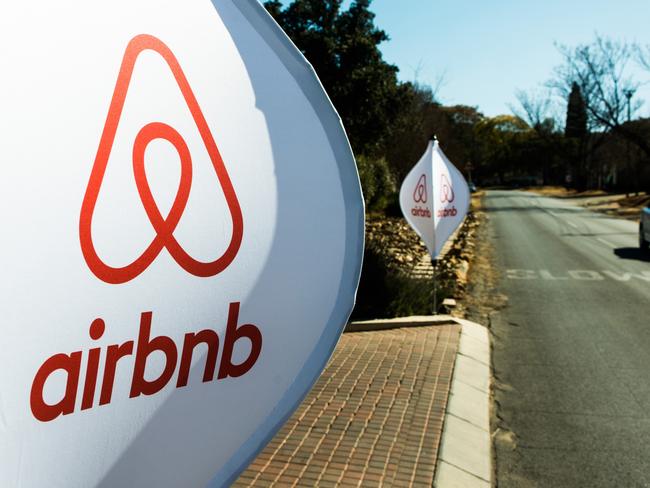
“We knew they’d be running into regulatory issues everywhere and that they have too many reasons not to share data.”
AirDNA’s latest data, for the year to October, shows the top earner in Australia was an unnamed host or property management company in Sydney. Their staggering $5.3 million total revenue came from 247 properties.
Seven of the top earning hosts in the past year were in NSW. Across the Central Coast it says there were 1615 active listings with the top earner making $4 million from 168 properties.
Airbnb’s management rubbishes AirDNA’s data, but Mr Shatford hit back: “We feel really confident in our numbers … it’s a maximum of a 1-2 per cent error rate.
“What we try to track goes beyond what Airbnb has the data for.”
He said the howls of protest from the Australian lobby groups were happening in the US too.
“They are reading off the same playbook, talking about the extra tax burdens and lack of a level playing field,” Mr Shatford said.
“Airbnb is great for everybody except for hotels, because they can’t charge what they did last year.”


